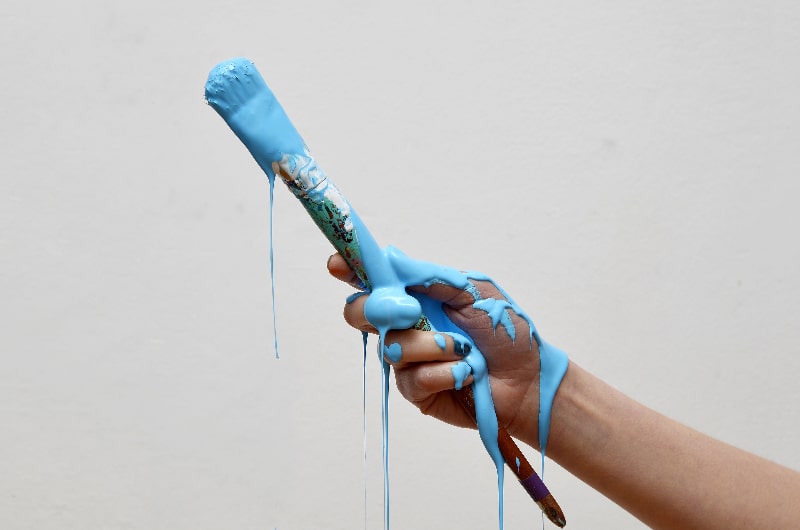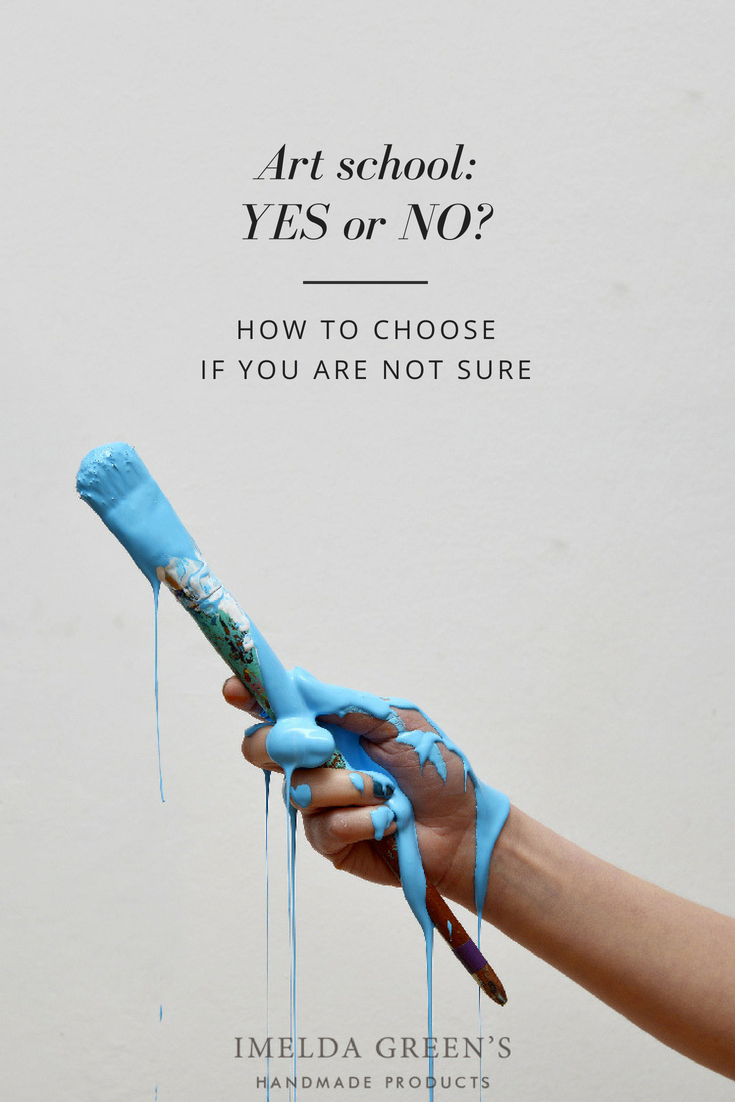
Art school: YES or NO?
When I walked out of University with a fresh degree in my hand I promised myself that I would never ever attend art education again. Despite all analysis I will probably never find out whose fault it was that I ended up with this unfortunate conclusion, but it is more or less a fact that they tried very hard to beat creativity out of me. It’s lucky that creativity does not work that way.
It is not that easy to stop someone being creative. You can break down enthusiasm, but as soon as the disturbing factors disappear, creativity will come out of its hiding place. In my case, once university was over, I went back to my paintbrushes.
What’s so difficult about this?
Teaching art is definitely the odd one out in the line of institutional education because students don’t just learn something (khm.. swallow the text book..), but give their heart and soul to completing a task. So one single number rating the student according to the traditional grade system can swell into a self-destructive monologue in the student’s head, going something like this: ‘this work is complete rubbish, you are utterly untalented. But people are born talented, so you might as well stop creating all together, you’ll never make anything out of this. Haven’t you seen all those other people creating better work than you?’
Of course if you study in a smaller place, rating may not be confined to a single number, even though this system is excessively used in higher education. However – like I said in my post about good art teachers – tutors have a difficult job too: they need to express criticism in order for the student to grow, but they have to express it in a way that does not crush the pupil’s enthusiasm.
Back to school
About 2 years after my ‘fresh degree’ I got back into that stupifying art education. No wonder, I’m a masochist, but this time I was not driven towards Graphic Design School by some insurmountable desire for pain, but by impostor syndrome. To be more precise, I did not feel myself a true designer until I completed some kind of education.
According to Elizabeth Gilbert you must not wait until someone gives you permission to create. But the little devil kept whispering in my ears: ‘Don’t pretend to be a graphic designer.’
So what happened?
Well, it wasn’t a complete turnaround, I still hate drawing when I have two other people huddling on art horse benches in a 1 m circle around me, my stomach still clenches when a tutor picks the pencil out of my hand to correct mistakes, and I generally don’t like being watched while painting (‘it will soon be obvious that you are no good at this’ Mr Impostor).
But somehow I still ended school on a positive note: I met some really good art teachers (yes, this specimen does exist), I got a boost of confidence (in other words, permission to continue), and not least, a fair amount of creativity.

So should you go or not?
I hesitated on the answer for two years, but luckily you will not have to do so, because I have some advice that might help you reach a decision sooner:
- If you are a complete beginner and you’ve only just heard of the profession, don’t start with formal education. Learn as much about it a you can: look for blogs that deal with the subject, find vloggers who explain what their days look like in that particular profession. It is best to learn as much about it as possible before investing time and money in education, because school is one thing, life might be something different. You are in luck though, there is plenty of information easily excessible online these days, so you won’t have to jump into the unknown.
- Talking about online: start by teaching yourself. With platforms like youtube and skillshare you can learn absolutely anything from tiling through Chinese language to playing the hurdy-gurdy – up to a level. Perhaps that level is enough for you, but even if it’s not, you will not walk into class being completely dumb about what you’re going to study. Some teachers may not agree with this – what if you learn something the wrong way? – but you’ll still have a better understanding of what you are trying to do. After all, art is not brain surgery. What have you got to lose?
- I would never have thought that I was ever going to say this, but do not stick to university. If you haven’t got a degree yet, have the time and money, then sure, go ahead, study art history, broaden your mind and network as much as you can. But if you’ve done all that and it’s really the profession only that you are interested in, then forget university. Believe me, you do not need time waster subjects like ‘Introduction to Economics’ and such.
- Learn about the school you want to choose. Go to their open days, complete workshops there if they offer some, so you experience the school’s atmosphere before engaging in longer courses.
- Don’t chase a degree. Chase knowledge, creativity and work experience. In design – and I believe also in writing and performing arts – employers will choose you based on the work you produce rather than the institution who gave you your degree and/or title. Don’t forget that school is like a fruitbowl, from which everyone is allowed to take as much as they want: a person with a weak portfolio will have graduated with the same degree as you, who have a solid body of work. Employers know this, so they will be interested in your portfolio rather than your degree.
- Know that the tutor is not God. He will probably know more than you, but you are still allowed to have your own opinions. Consider his advice but do not take it for granted. Art is subjective, something he does not like may not be rubbish.
- What you can expect: a lot of ‘compulsory’ exercises that will give you a boost of creativity that you never knew you had. You can meet people with whom you share interests and maybe even work. You may get a confidence boost like I did, or some kick-in-the-ass motivation if you are lazy.
- What you should not expect: nobody will do the tasks instead of you. You will have to find your own style alone, and it’s you who has to put in those 10’000 hours of practice. They may not even teach you ‘how’ to do this. You get a general picture, but you will nearly always have to fill in the information gaps yourself, regardless of whether you spend 5 years at a university or 1 year in some evening course (so go ahead and browse the internet!).
Based on (or despite) many years of experience I have decided to go back to art school again, studying Illustration. Not necessarily to have a degree in it, nor to get permission to create, but because my creativity grows every time I complete tasks, I am inspired by the people I work with, and my mind broadens in a way it would not do on its own.
Have you got any experience? Have you participated in art education? Share your views in the comments!


